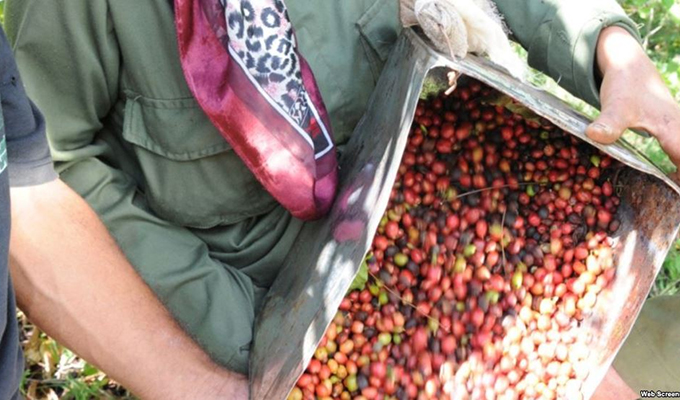 SANTIAGO DE CUBA, Cuba, Dec 13 (acn) The project The Roads of Coffee, aimed at safeguarding the cultural heritage of Cuban coffee, will allow tourists to know the history of the first coffee plantations in the eastern part of Cuba.
SANTIAGO DE CUBA, Cuba, Dec 13 (acn) The project The Roads of Coffee, aimed at safeguarding the cultural heritage of Cuban coffee, will allow tourists to know the history of the first coffee plantations in the eastern part of Cuba.
Yaumara López, worker of the City Curator´s Office in Santiago de Cuba, said that for 2017 they have planned tours to sites of the Archaeological Landscape of the first coffee plantations in southeastern Cuba, declared World Heritage Site in 2000 by UNESCO.
She highlighted the contribution of the project to sustainable economic management in rural communities, where entities, agencies and the population itself will be inserted, with the strong interaction of the private sector, since those are remote and intricate places.
On the tours, visitors will know how life and cultivation were there, on the flowering of the plant, the fruit, its collection, processing until its tasting, she noted.
She also mentioned benefits received in that mountain area with the electrification and improvements of roads, while she praised the participation of the population, especially children, who will be the continuators of the project.
The French-Belgian Malongo Foundation and the European Union collaborate with the City Curator´s Office of Santiago de Cuba, in addition to Cuban and foreign institutions and associations with interests and actions of the project.
As a result of the Haitian revolution, in the late eighteenth and early nineteenth centuries, thousands of French-Haitians arrived in Santiago de Cuba and settled down in neighborhoods such as El Tivoli and La Marina and in mountainous areas on the outskirts of the city.










Nos reservamos el derecho de no publicar los comentario que incumplan con las normas de este sitio